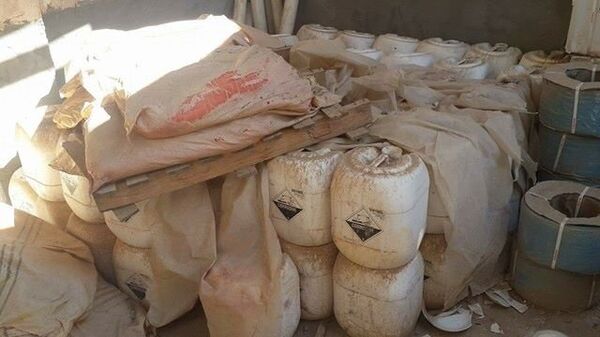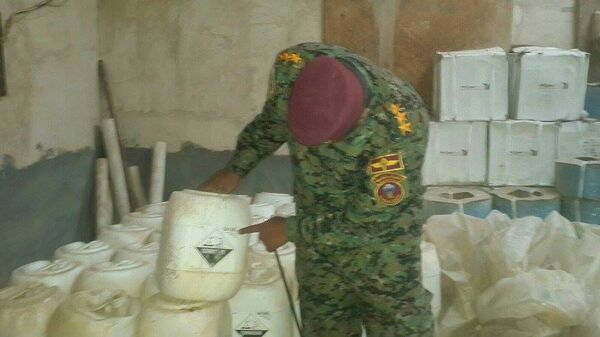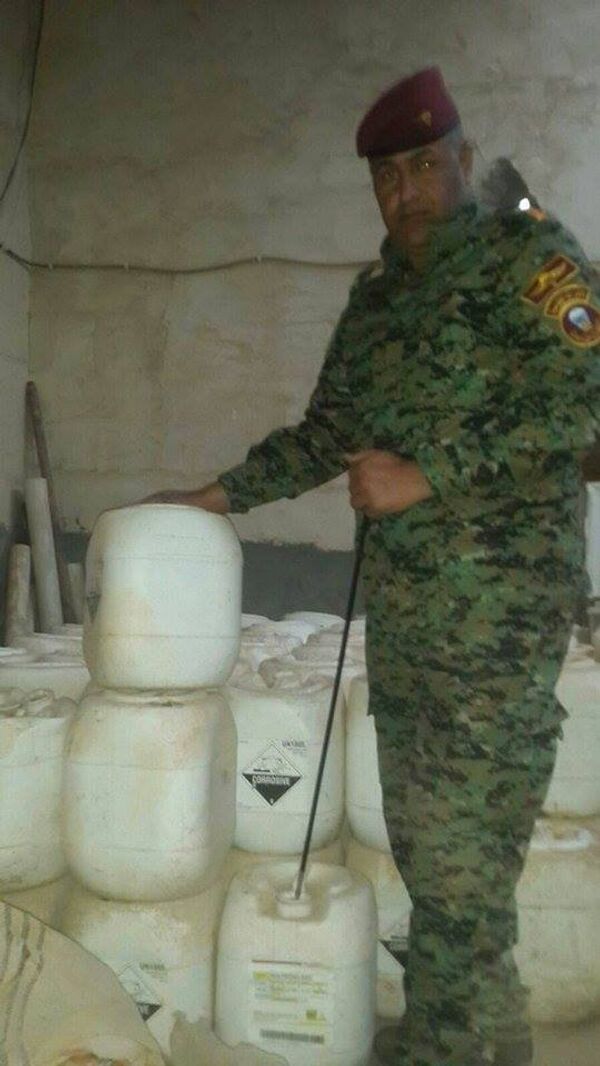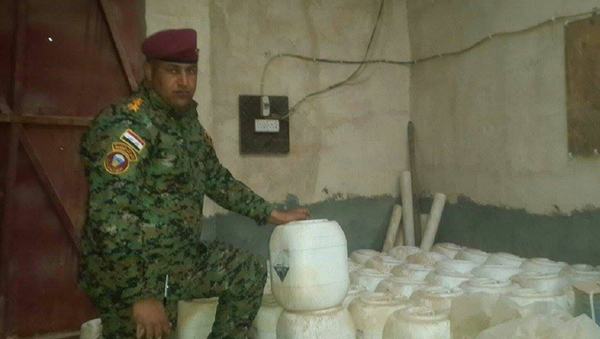The footage shot on location shows an officer of the local self-defense forces talking about the compound known as Vinyltrichlorosilane, which is identified by the United Nations as a hazardous substance (UN ID: 1305).
Vinyltrichlorosilane is corrosive to skin, eyes and respiratory system. It could cause tissue damage, produce skin burns and result in blindness. Overexposure to the chemical may result in serious illness or death.

سبوتنيك تنشر تسجيل مصور من داخل مخزن للمواد الكيماوية في #الأنبار، التي يستخدمها تنظيم "#داعش" في هجماته الإرهابية pic.twitter.com/1S1jImLlal
— Sputnik Arabic (@sputnik_ar) 25 февраля 2016 г.
"Daesh fighters place this chemical in mines and missiles to attack civilians and security forces. It could cause asphyxiation if inhaled," the officer detailed.
Local self-defense forces discovered the warehouse in an industrial area of western Ramadi. The capital of the Anbar province spent more than six months under the militant control.
سبوتنيك تنشر تسجيل مصور من داخل مخزن للمواد الكيماوية في #الأنبار، التي يستخدمها تنظيم "#داعش" في هجماته الإرهابية pic.twitter.com/IWkzhXQ9ZM
— Sputnik Arabic (@sputnik_ar) 25 февраля 2016 г.
"The chemical has been kept in these bags [as well as canisters], but I cannot open them because I don't have a mask and gloves. Film the contents of the canister… Be careful, the chemical has acrid odor. This is what Daesh is using to attack civilians and security forces," the officer of the 5th regiment of the self-defense forces in Anbar narrated.
The video shows that some of the canisters, discovered in the warehouse, are empty, while forty containers remain sealed.
Iraqi security forces have already transported some of the chemical weapons to a safe area, a source, who spoke on condition of anonymity, told Sputnik. The source added that the soldiers had to remove explosive devices along the road to the warehouse.

The surrounding area has been cordoned off and no one is allowed inside the warehouse.
Daesh used Vinyltrichlorosilane against Peshmerga and Yazidi fighters on the outskirts of Sinjar on February 11. Twenty-three people experienced shortness of breath and suffered burns. The injured were taken to hospital in the city of Dohuk, the capital of the Dohuk Governorate in Iraqi Kurdistan.



